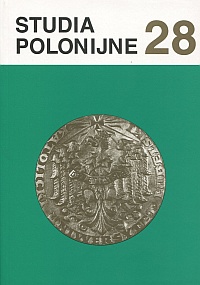Zygmunt Miłkowski wobec poglądów Lwa Tołstoja u schyłku XIX stulecia
Main Article Content
Abstrakt
One of them most important themes discussed by the nineteenth-century writers, journalists, and moralists was the question to promulgate peace in the world. It was dealt with also by Poles, among whom we find Zygmunt Miłkowski (T.T. Jeż), the writer, journalist, and soldier who lived in 1824-1915 (a participant of the Spring Nations in Hungary and the January Rising). He was a socio-political activist (among other things, a member of the Polish Democratic Society, Unification of Polish Emigration, League of Peace and Freedom, Polish League, and the Society of Polish Refugees). In the 1890s he discussed with, among other things, the opinions of the writer Lev Tolstoy (1828-1910); Tolstoy set the national idea and patriotism against the idea of building peace and the Kingdom of God on Earth, whereas he accused all social and state institutions of spreading „evil”.
In opposition to Tolstoy, Miłkowski would stress the power and importance of patriotism, especially among the nations deprived of independence, such as Poles or the Irish. Miłkowski advocated national solidarity, was hostile to Russian despotism and called to establish Polish institutions independent of the imperialist authorities. He thought that only by way of military fight and enhanced social, scientific, and cultural work could Poles become independent. Therefore instead of such means as passive resistance, or awaiting international justice, he postulated Polish „active defence” and intensive construction of the institutional foundations of Polish statehood, based also on national tradition.
Seeing, however, that the international relations were not ruled by the principle of love, but often force, violence, hatred, lies, and deceit, he would postulate to fight for the laws of nations and human rights. Taking the view of neighbour's love, except when the life and dignity of the nation and man were repeatedly violated by foreign authorities, he dreamed about the future of the world based, among other things, on the foundation of law and mutual trust. He presumed – as it seems from his noble illusion – it would happen when Poland would regain independence.

